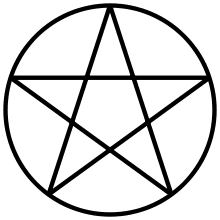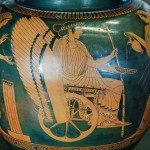In our programs, we are told that “we are only as sick as our secrets,” that we need to be “fearless and thorough” in our personal inventories and to make amends to those we’ve hurt. To do this, we must have some form of measure by which we judge what to (not) keep secret, what qualifies as fearful, what signifies harm to others or to ourselves. That measure is our ethical code.
Many of us were drawn to our Paganism for its ‘occult’ (as opposed to ‘revealed’) nature and encouragement of our personal experience of the divine. This hearty individualism has many manifestations, including the lack of an over-riding set of values or virtues.
Many of us don’t belong to any particular tradition, or even if we do, there is no “statement of purpose” in our practice. As drunks and druggies and whatever other kind of addict, often our main stricture is abstinence and submission to the 12 Step program rules and regs. This can take us pretty far. But there may be aspects of our lives that are not directly touched by the programs, or we aren’t an “XX Anonymous” person at all. In that case what do we live by? How do we go about creating a workable system for ourselves?
In or out of the (big or little) Tent, different groups have lists of virtues (or proscribed behaviors) to guide their lives: the 5 points each of Feri Tradition’s Iron and Pearl Pentacles; the 7 Virtues of Bushido (or Chivalry); the 8 Noble Paths of Buddhism; the Nine Noble Virtues of some Norse groups; the 10 Commandments; 11 Lords a’ Leaping (just kidding on that last one (I think)).
There is nothing inherently right or wrong about any of these systems. They will lead to different places and different types of societies: those that value courage consider cowardice a ‘sin’; those that value non-violence consider striking out in anger this way. Even those are not mutually exclusive. This adds even more complexity to the question of how we live each day.
There are many ways to explore this quandary. In Shapeshifter line, we use an exercise born out of Feri trad’s Pentacle system.
First, find or create a list of values. There are many online or you can make your own by thinking of some folks that you admire and listing their characteristics (or folks you don’t admire and listing the opposite of what they do!) Go through this list and put a star next to all the qualities that immediately attract your interest. Now recognize that you have limited resources. You can’t focus on everything you think is good or cool. You have to choose! So, go back through again and begin to cull or sort. You might want to create separate pentacles for your work life, your love life, your spiritual life, etc, but after all that rigmarole, when you are finished, try to get down 5 primary ideals, one Pentacle (to rule them all!) that encompasses the virtues that touch all the areas of your life.
 Once you’ve made your pentacle, see how it jibes with your actual reality. See if you are truly living in support of your values, and if you are not, ask yourself why. Is it because you only think that you value this thing, when you really don’t? Or is it because you are afraid to live closer to your ideal? You will find places where you are out of touch with your values. Would you rather line up your life? Or change your priorities? Is there a particular part of the pentacle that you can focus on building strength in today? Are there actions that you can take right now that will move you closer to your ideals?
Once you’ve made your pentacle, see how it jibes with your actual reality. See if you are truly living in support of your values, and if you are not, ask yourself why. Is it because you only think that you value this thing, when you really don’t? Or is it because you are afraid to live closer to your ideal? You will find places where you are out of touch with your values. Would you rather line up your life? Or change your priorities? Is there a particular part of the pentacle that you can focus on building strength in today? Are there actions that you can take right now that will move you closer to your ideals?
Print out or craft a copy of your Pentacle to put over your altar. Meditate on it for a few moments (or more) each day. Make one to carry with you, to review periodically. Make Pentacles with your covenmates or other spiritual community, as a way to understand each other better. Create one for your group that carries the vision for your shared venture.
Let me be clear: (as Mary Oliver says) “You do not have to be what I call good.” You do not have to be what anyone calls “moral” or “nice”. But if we want to stay true to our health in sobriety, we do have to think deeply about how closely we are following our own beliefs about what is right and true and good. Whether consciously or not, we are already judging ourselves all the time. It’s that tendency that drives us to the bottle or the needle or the casino when we feel that we’re not living according to our own truth. We want to forget how we’re letting ourselves down.
Guilt does for the soul what pain does for the body: it lets us know that there is a problem that needs to be tended to. But there is such a thing as false guilt. When we are using old beliefs from old systems to judge ourselves, then the measuring stick becomes a club to beat ourselves with. When we know what we value today, we can disarm the false signal and become that much stronger in our resolve to act honorably.
We make our world with every single decision. Our lives depend on our making good choices with the information we have. We open the way to sobriety, clarity, compassion, or we open the way to disappointment, hurtfulness, apathy. We get to live with the consequences of our actions, as do our children, and our children’s children, and everybody else’s children, and that laughing baby penguin and that dog that saved another dog’s life. Let’s all do our best, shall we?
The Dance of Pagan Recovery is published on alternate Tuesdays. Subscribe via RSS or e-mail!

















